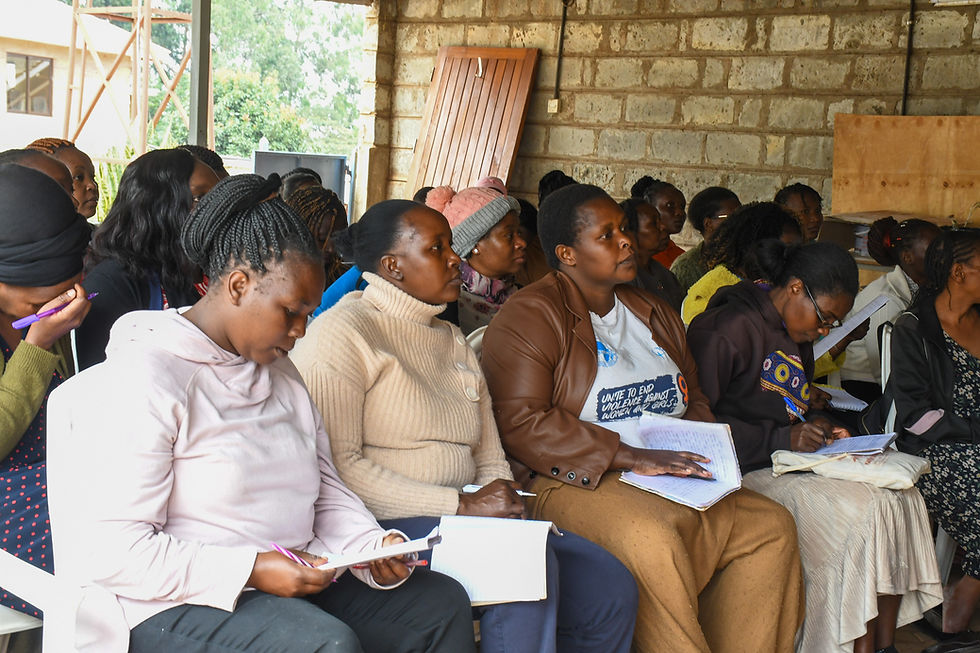Leah-Diversifying and Reaching for Greater Heights
- Melissa Onguti
- Dec 14, 2022
- 2 min read
Updated: Apr 24, 2023
Leah, a 30 year old mother of 3 has a passion for farming that was fostered by watching her mother care for livestock and work on the family farm . When her mother passed away in 2015, Leah was devastated. But she channeled all the strength and wisdom she had gained from her mother into managing both a successful farm and raising a family of her own. Her love for farming is evident as she walks us through the different sections of her farm, showing us lush green plants, healthy cows and chickens—all tended to by a caring hand.

Leah's family began having financial troubles a few months ago when her husband would go for long periods without work as well as raising costs of animal feeds—all of which made money tight for the family with 3 children in school.
When Leah heard about the Fanikisha program, she decided to enroll hoping that she would be able to apply the knowledge to improve her business. During the training, Leah realized that selling some of her chickens could generate capital for starting up another part-time venture—selling scarves in her village.
She went to the Gikomba, the largest open-air market in Kenya, bought scarves and sold them all within a single day. Her initial success prompted her to invest more capital—and now she has regular customers.
Through the training, she has learned how to manage her finances and can now comfortably provide for the needs of her entire family. She also applies this knowledge on her farm: keeping up-to-date financial records and has worked on a business plan, a skills she learnt through Fanikisha, for her expansion plans.
"If it wasn’t for the training and the fresh perspective it provided, I would have sold everything just to survive"
Leah also receives encouragement from her mentor to keep pursuing her goals. She dreams of upscaling both of her businesses and aims to create more employment opportunities for her community through this venture.

Leah shows how a solid business training program like Fanikisha can equip women-owned businesses to become more competitive, grow, and create employment. In gaining practical skills and receiving mentorship, these women are able to support themselves—and their families.











Comments